
| 2008 Boston Conference Photos |

George E. Marcus, professor of political science at Williams College, the recent past president of the International Society of Political Psychology, the coauthor of The Affect Effect (University of Chicago Press, 2007), is also the author of "Threat, Partisanship, Risk, and Deliberation" in the current issue of Critical Review (vol. 20, nos. 1-2).
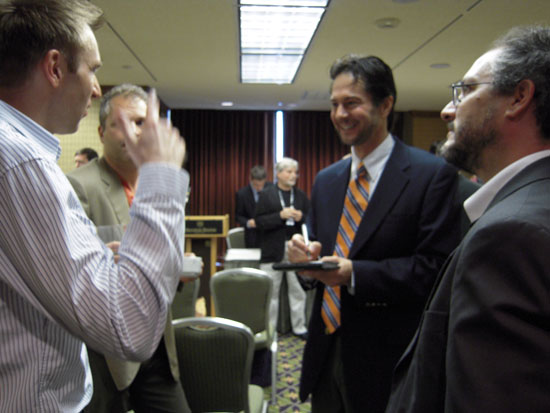
Mark Pennington, Russell Muirhead (obscured), Jeffrey Friedman, Tom Hoffman
Mark Pennington is Senior Lecturer in Political Economy, Department of Politics, Queen Mary College, University of London. His critique of deliberative democracy will appear in vol. 22 of Critical Review.
Jeffrey Friedman is the editor of The Rational-Choice Controversy: Economic Models of Politics Reconsidered (Yale University Press, 1996), as well as being the editor of Critical Review, which he founded while he was a History grad student at Berkeley in 1996. Later he got his Ph.D. in political science from Yale, and has taught political theory and social-science methodology at Barnard, Dartmouth, and Harvard. He is now a Senior Visiting Fellow at the University of Texas at Austin.
Tom Hoffman received his Ph.D. in political science from Indiana University with a dissertation on David Hume, and is teaching American politics and political theory at Spring Hill College. His classic article, “Rationality Reconceived: The Mass Electorate and Democratic Theory,” appeared in Critical Review vol. 12, no. 4.
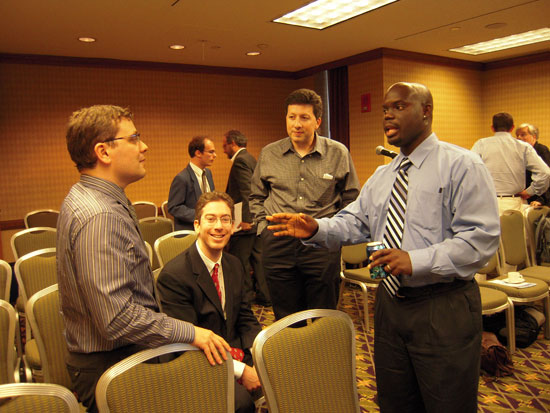
Ilya Somin, Bryan Caplan (seated), Rep. Dan Greenberg (Ark.), Brian Pitt (Univ. of Delaware)
Ilya Somin is a Visiting Assistant Professor at the University of Pennsylvania Law School and an Assistant Professor of Law at George Mason University. His widely cited Critical Review article, “Voter Ignorance and the Democratic Ideal,” helped kick off the journal’s preoccupation with that topic, and his book, Democracy and the Problem of Public Ignorance, is forthcoming from the University of Michigan Press.
Bryan Caplan is an associate professor of economics at George Mason University. His 2007 book, The Myth of the Rational Voter: Why Democracies Choose Bad Policies, has now appeared in paperback from Princeton University Press, and was named “the best political book” of the year by Nicholas Kristof of The New York Times. Critical Review is publishing a symposium on The Myth of the Rational Voter in vol. 20, no. 3, with contributions from Stephen Bennett and Jeffrey Friedman; Jon Elster and Helene Landemore; Roderick Kiewiet and Andrea Matozzi; and Paul Quirk.
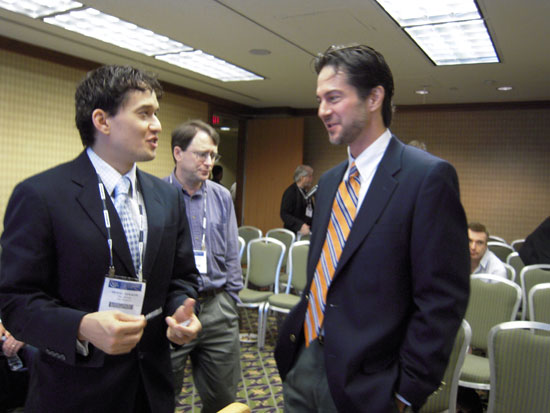
Michael Murakami, William G. Mayer (Northeastern Univ.), Jeffrey Friedman
Michael Murakami has just received his political science Ph.D. from Berkeley, was an APSA Congressional Fellow last year, and is now a post-doctoral fellow at Yale’s Center for the Study of American Politics. He will begin teaching at Georgetown in the fall of 2009. He has papers forthcoming in Legislative Studies Quarterly and the Journal of Public Administration, and his "Paradoxes of Democratic Accountability" appears in the current issue of Critical Review (vol. 20, nos. 1-2).
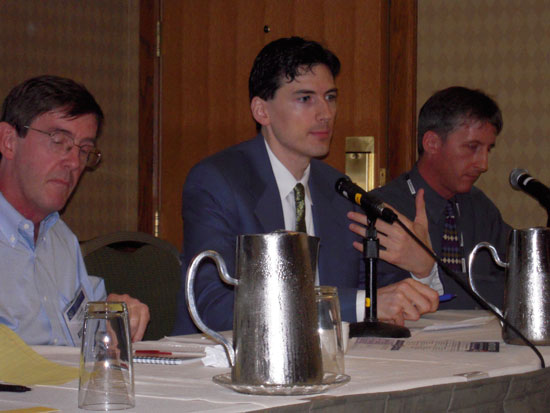
Paul Quirk, John Bullock, Scott Althaus
Paul J. Quirk is the Phil Lind Chair in US Politics and Representation at the University of British Columbia, an Editorial Advisor of Critical Review, and the coauthor of "Reconsidering the Rational Public" (2000) and Deliberative Choices: Debating Public Policy in Congress (2007).
John Bullock is an assistant professor of political science at Yale who recently received his Ph.D. from Stanford. His "Lethal Incompetence: Voters, Officials, and Systems," coauthored with Jonathan Bendor, appears in the current issue of Critical Review (vol. 20, nos. 1-2).
Scott L. Althaus is Associate Professor of Political Science at the University of Illinois at Urbana-Champaign and an Editorial Advisor of Critical Review. His award-winning first book, Collective Preferences in Democratic Politics, was published by Cambridge University Press in 2003.
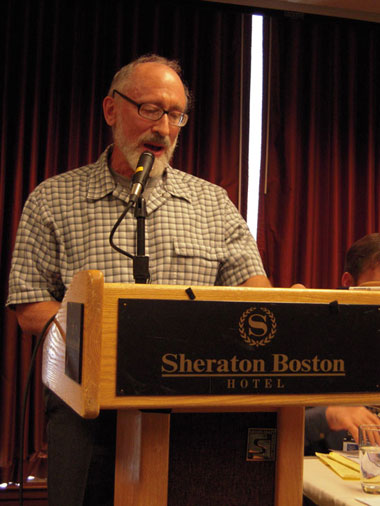
David Barash is a professor of psychology at the University of Washington and the author of many books, including Economics as an Evolutionary Science, From Utility to Fitness, and Natural Selections: Selfish Altruists, Honest Liars, and Other Realities of Evolution.
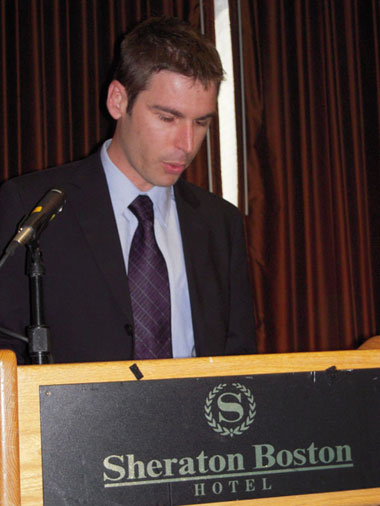
Samuel DeCanio will be an assistant professor of political science at Yale University beginning in the fall of 2009. His research on American political development, political parties, voting behavior, and empirical democratic theory has appeared in Critical Review, the Journal of Politics, and Studies in American Political Development.
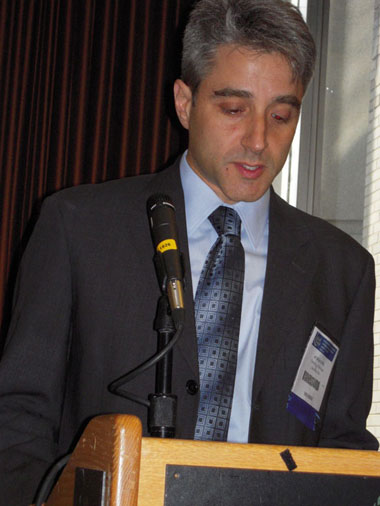
Arthur Lupia is the Hal R. Varian Collegiate Professor of Political Science at the University of Michigan, and serves as the principal investigator of TESS, which assists scholars with innovative experiments on a wide array of public-opinion surveys.
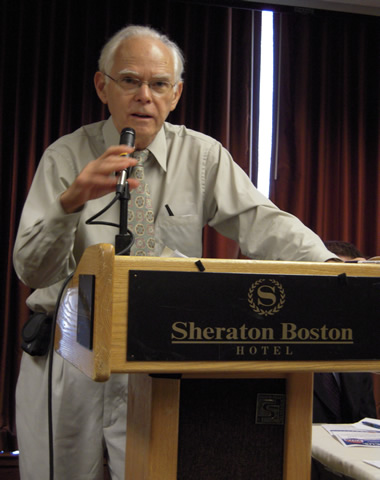
David R. Mayhew is Sterling Professor of Political Science at Yale University and an Editorial Adviser of Critical Review. He is the author of Congress: The Electoral Connection, Divided We Govern, America’s Congress, and Electoral Realignments.
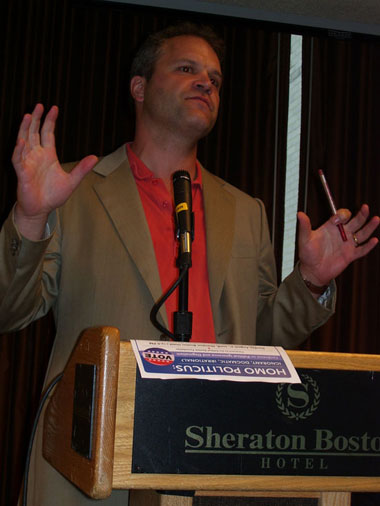
Russell Muirhead is Associate Professor of Government at the University of Texas at Austin. His book on the moral meaning of work, Just Work, was published by Harvard University Press in 2004, and his paper on the undernoticed benefits of partisanship will appear in vol. 22 of Critical Review.
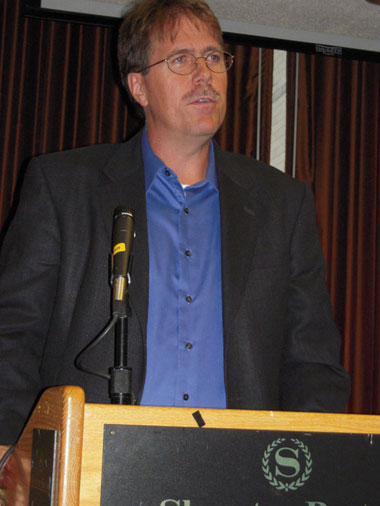
Charles S. Taber is a professor of political science and co-director of the Laboratory for Experimental Research in Political Behavior at Stony Brook University. He currently co-edits the journal Political Psychology, and his paper with Milton Lodge, “Motivated Skepticism in the Evaluation of Political Beliefs,” will be the subject of a symposium in Critical Review in 2010.
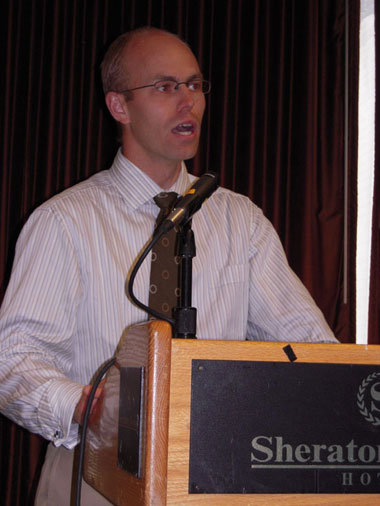
Nick Weller just received his Ph.D. from the University of California, San Diego, and is an assistant professor of political science at the University of Southern California. His experimental research focuses on the interaction between institutions, information, and human behavior. He is currently engaged in a research project to study experimentally how network structure affects the ability of subjects to solve group coordination and cooperation problems.
